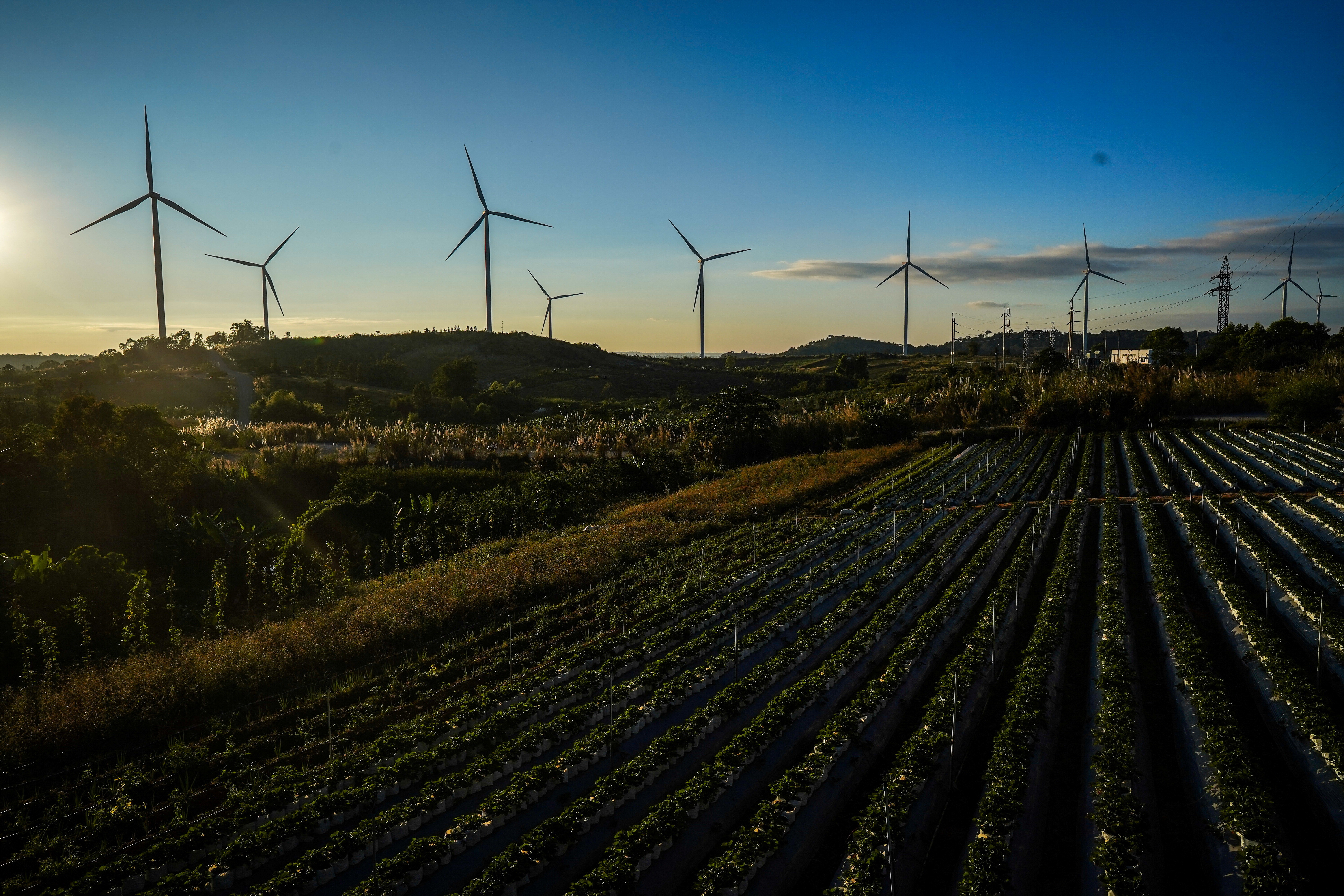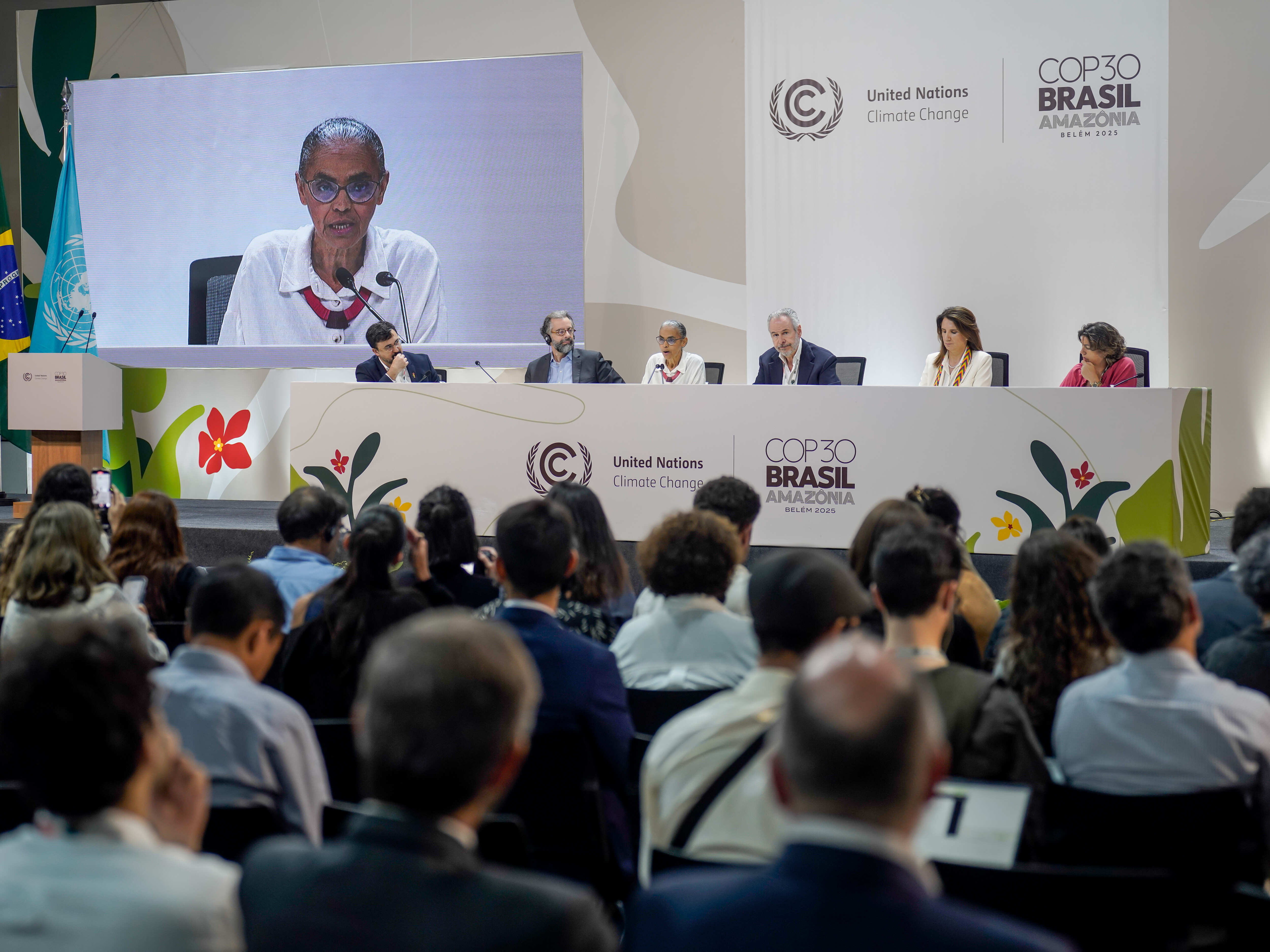People need to be central to climate change solutions

Good work on climate change and deforestation was done at COP26, but we need to keep up momentum. Image: Eutah Mizushima/Unsplash
- Nature and forests appeared prominently in the final text of the Glasgow Climate Pact at the end of the UN climate conference, COP26.
- But radical change is needed and we need to build on momentum ahead of COP27, despite challenges such as the ongoing impact of COVID.
- Partnerships between the public and private sectors will be required to ensure solutions are sustainable.
COP26 took place more than four months ago. Despite some negative headlines, there was much to celebrate, particularly for the forest agenda. But it is critical that we now build on that momentum with tangible progress ahead of COP27 in Egypt, setting the tone for this crucial decade of implementation.
The current situation is paradoxical. On the one hand, the science has never been clearer: we are past the 11th hour of avoiding serious consequences from the intertwined crises of climate change and biodiversity loss. Yet outside the environment bubble, broader society is not behind the deeper changes required to address these crises.
Most of us have shorter-term priorities, particularly set against the backdrop of a new war in Europe, the long tail of COVID-19 or the pressing development challenges such as access to clean water and sanitation that are faced, on a daily basis, by so many in the Global South. Plus, political leaders around the world are not elected on platforms that commit them to the radical change required.
On the other hand, however, there is real momentum and energy from the private sector to accelerate change – although this is not universal and, of course, still not enough in isolation.
Real progress made on climate change
It has been more than three years since I joined the Tropical Forest Alliance (TFA) at the World Economic Forum. There is now greater understanding within both the public and private sectors about what is required to reduce biome conversion in critical tropical forest geographies.
There are instances of real progress. For example, deforestation in Indonesia linked to palm oil has dropped significantly through a combination of government action and corporate leadership. Risks persist, as do tensions with Indonesia, as stakeholders in the Global North have failed to reward the country for its progress.
Stakeholders in the north continue to underestimate the strategic importance of the palm oil sector to the country – it employs more than 20 million people directly and indirectly and is one of the country's most valuable exports. There are similar tensions in each of the forested countries across the tropics.
People need to be central to solutions
I would specify three observations from our own work at TFA. Firstly, progress will remain limited until we bring economic development and dignity for millions of people in the Global South into the very centre of the discussion.
Data in the most recent TFA report highlights the need for systemic solutions that are designed to improve rural livelihoods and boost food production, while at the same time keeping forests standing.
Many of the tropical forest country producers are deeply affected by food insecurity, let alone the worry about their families' long-term future. Unless we understand this – rather than trying to impose norms from the Global North – the accusations of post-colonialism will only increase and solutions will remain distant.
At the same time, I do not see any contradiction in TFA welcoming and supporting European legislation banning 'imported deforestation' – or similar regulation in the US or UK. Consumers in these ‘developed’ markets are demanding higher environmental integrity, so lawmakers need to act.
But regulation will only work to encourage sustainable production if it is also accompanied by genuine partnerships for producer countries to manage the transition – for example by supporting smallholder farmers.
Recognising the costs of the painful transition for coal is well understood, and the South Africa Just Energy Transition deal at COP26 was a great example of the type of partnership that is required. We need to start thinking along similar lines for the agricultural sector, the largest employment sector on the planet.
Partnerships are vital to build workable solutions
Secondly, partnership – north-south; public-private; producer-market – is crucial to progress, and stronger and more effective partnerships are going to be needed to make genuine headway.
Partnership inevitably requires that the world 'slows down', that all stakeholders take time to build trust and work out what will truly work. The alternative – which has always failed, and will continue to do so – is to enter into a series of confrontations that only breed greater mistrust.
The World Economic Forum's recent The Power of Partnerships report highlights 13 examples of the positive effect that partnerships can bring. It provides examples from all sectors and geographies that are facilitating systemic change.
Power of partnerships to facilitate systemic change
This includes, for instance, the coming together of 12 of the world’s largest traders and processors of agricultural commodities that have committed to delivering a shared sectoral roadmap to achieve 1.5°C by the 2022 climate change conference in Egypt.
Likewise, the Consumer Goods Forum has seen companies pledging to transform production landscapes to be forest-positive, equivalent to their supply footprint, by 2030. Each coalition member, including the likes of PepsiCo, Tesco, Mars and Carrefour, has committed to investing in local-level initiatives that drive forest conservation, ecosystem restoration and community inclusion in the production of their four key commodities: palm oil, soy, paper, pulp and fibre-based packaging, and beef.
Financial sector's engagement will be vital
And finally one newer area – and potentially a game-changer – is the engagement of the mainstream financial sector. For example, the Glasgow Financial Alliance for Net Zero brings together 450 financial institutions from 45 countries with the common goal of net-zero carbon emissions.
This is very promising, as it brings additional attention and scrutiny to encourage those business leaders who are already taking action, and to help put pressure on the laggards.
On deforestation, TFA was closely involved in an initiative announced at COP26 through which more than 30 leading financial institutions, with more than $8.7 trillion in assets under management, committed to tackling deforestation in their investment portfolios.
We can, and must, tackle climate change
As I move on to a new role in the finance sector to look to accelerate impact, I am buoyed by the increasing number of governments, companies, civil society groups and communities that are beginning to pull in the same direction.
What’s the World Economic Forum doing about deforestation?
This article outlines just a few examples of what is already working. But these efforts need to be expanded and magnified if we are to effect the action on climate change and biodiversity loss that is so desperately required. No one is suggesting that it will be easy, but it can be done and must be.
After three-and-a-half years as Executive Director of the Tropical Forest Alliance, Justin Adams is moving on to a new partnerships role in the private sector. These are his reflections on what needs to happen next for the momentum at COP26 to translate words into action.
Don't miss any update on this topic
Create a free account and access your personalized content collection with our latest publications and analyses.
License and Republishing
World Economic Forum articles may be republished in accordance with the Creative Commons Attribution-NonCommercial-NoDerivatives 4.0 International Public License, and in accordance with our Terms of Use.
The views expressed in this article are those of the author alone and not the World Economic Forum.
Stay up to date:
Climate Crisis
Related topics:
Forum Stories newsletter
Bringing you weekly curated insights and analysis on the global issues that matter.
More on Climate Action and Waste Reduction See all
Yufang Jia and Yiran He
December 5, 2025







